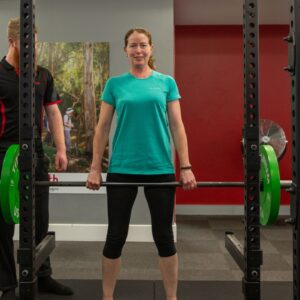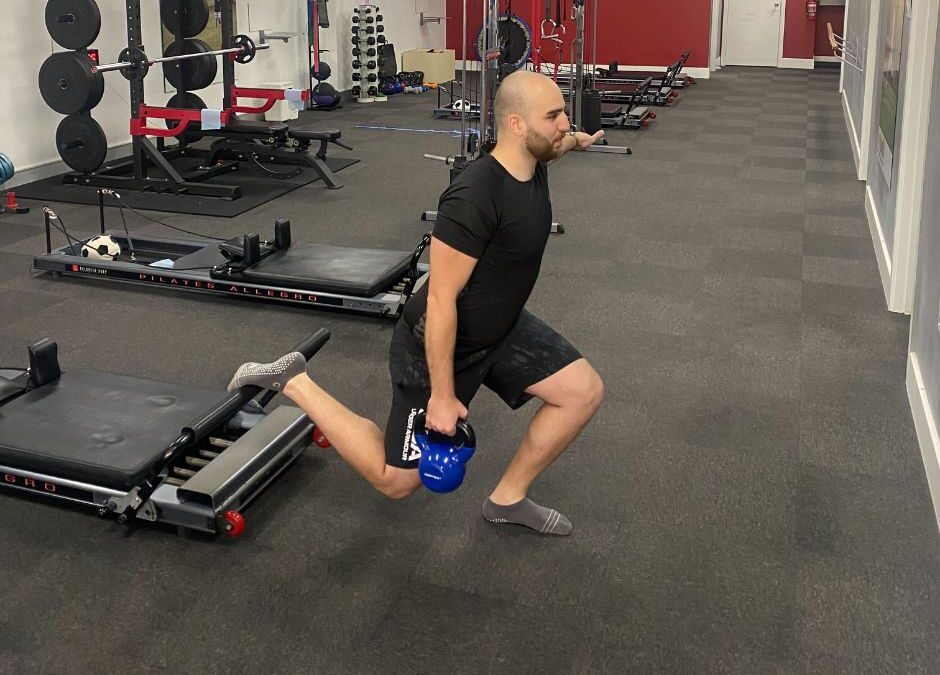The most important tips from clients who have come back to sport after injury
No matter what sport, age or participation level we have all suffered setbacks within our sporting endeavours. Injury can come at any time and can challenge us both physically and mentally. At MD Health we are met individuals who have suffered sporting injuries on a daily basis. Our clients all have their own unique story and have learnt how to overcome their injuries in different ways.
We’ve been lucky enough to have the chance to talk about sports injury and how one can overcome adversity to comeback stronger with one of MD Health Kew East’s regulars and kickboxing lover Khan. R.
How did your initial injury occur and what emotions were running through your mind at the time?
I initially dislocated my right knee by messing up a single leg takedown and collapsing onto my friend. It was a bit dramatic considering all my other friends were around as well. Initially I was in shock, disbelief but mainly really angry at myself; I was training hard around this time often hitting PRs, sharpening my kickboxing skills and planning to start to work in the fitness industry. However after half an hour after calling an ambulance I knew I’d be back training again, just not back to where I was but even stronger than before. Luckily my mum has been going to MD health for a long time so I had a great reference!
How did you fill the competitive space that had been taken away from you?
I started to immerse myself in studying and learning about the body to prepare myself for the fitness industry, even testing my knowledge with the clinicians at MD Health. Understanding muscles, planes of movement, energy system etc. That was my new routine, sit on my leg, support the coach, read and watch A LOT of fights. I continued to train my upper body safely making sure I avoid atrophy, moving away from building muscle to just maintaining as much strength as possible. Attempting to learn the Rubix cube and failed miserably, learning Turkish (Not just the rude words this time) and competing in the online space to fulfil my competitive side.
Did you have any setbacks and how did you overcome them?
My lumbar spine has always been an issue, even before my initial injury but it reached a boiling point where i injured my L4/L5/S1 discs when completing barbell squats at my gym,
Now my goals have shifted to recovery and safe loading when lifting, I’ve learned how to really focus on core activation and I really feel a positive difference in my form. I’m at a stage where this setback is more mental than physical. I’ve learned that I can maintain the pain by lowering the weights, stretching and using a massage ball. It’s a long road to recovery so it’s important to have a support system to keep you going and to remind you it’s only temporary.
How did you mentally prepare yourself when returning to kickboxing?
To be honest I was fairly scared to get back into it, petrified of re-injury. Key thing was to start slow, and only what I was comfortable with at the time; even if It was just using a jump rope for 10 minutes it was something to build off. I progressed from jumping rope, to shadow boxing, hitting the bag then finally returning to the gym environment. It didn’t happen overnight as it’s extremely important to see how your body responds. Am I in any pain? Am I too sore? I also replicated the reformer movements I do on my rehab sessions in my own warmup using cables / bands which helped greatly and kept me stable.
The best thing I ever did at the time was a 1 on 1 with my coach before taking any classes again, that way I knew I was being watched every step of the way and can increase the intensity safely. It was also a mental test, physically I was strong but mentally I was extremely apprehensive especially for my kicks. Slowly sessions we worked through my mental barriers and I was letting them fly with no issues.
What was the most important lesson you learnt along your rehabilitation journey?
Trying new forms of training and leaving the ego at the door, I’ll be honest I thought I’d fly through rehab and have perfect squat and rack pull form off the bat but I was humbled over time, I didn’t think there was a lot left to learn when it comes to training but I was sorely mistaken with the wealth of knowledge I’ve obtained on my journey.
I wanted to thank Khan for the commitment to his health and for taking the time out of his day to speak with us.
Do you have any questions?
- Call us on (03) 9857 0644 or (07) 3505 1494 (Paddington)
- Email us at admin@mdhealth.com.au
- Check out our other blog posts here
Our clinical staff would be happy to have chat if you have any questions.
Take the first step to a healthier you!
Would you prefer for someone to contact you to book your FREE Full Body Assessment*?
Please fill in this form and someone from MD Health will be in touch with you soon.
Alternatively please call us on:
07 3505 1494 (Paddington – Brisbane (QLD) Clinic)
Or email us:
admin@mdhealth.com.au (VIC) paddington@mdhealth.com.au (QLD)
*Please note only the Full Body Assessment is a FREE service. The Full Body Assessment is for new clients at MD Health or returning clients who haven’t been in for 6 months or longer who intend to particpiate in our 13 Week Clinical Pilates Program**.
For all new clients who wish to come in for a one-off, casual or adhoc basis for Physiotherapy or Exercise Physiology the Initial Physiotherapy or Initial Exercise Physiology appointment is a paid service.
** The 13 Week Clinical Pilates Program at MD Health is not a lock in contract and you are not required to attend for the full 13 weeks if you do not wish.
This site is protected by reCAPTCHA and the Google Privacy Policy and Terms of Service apply.




